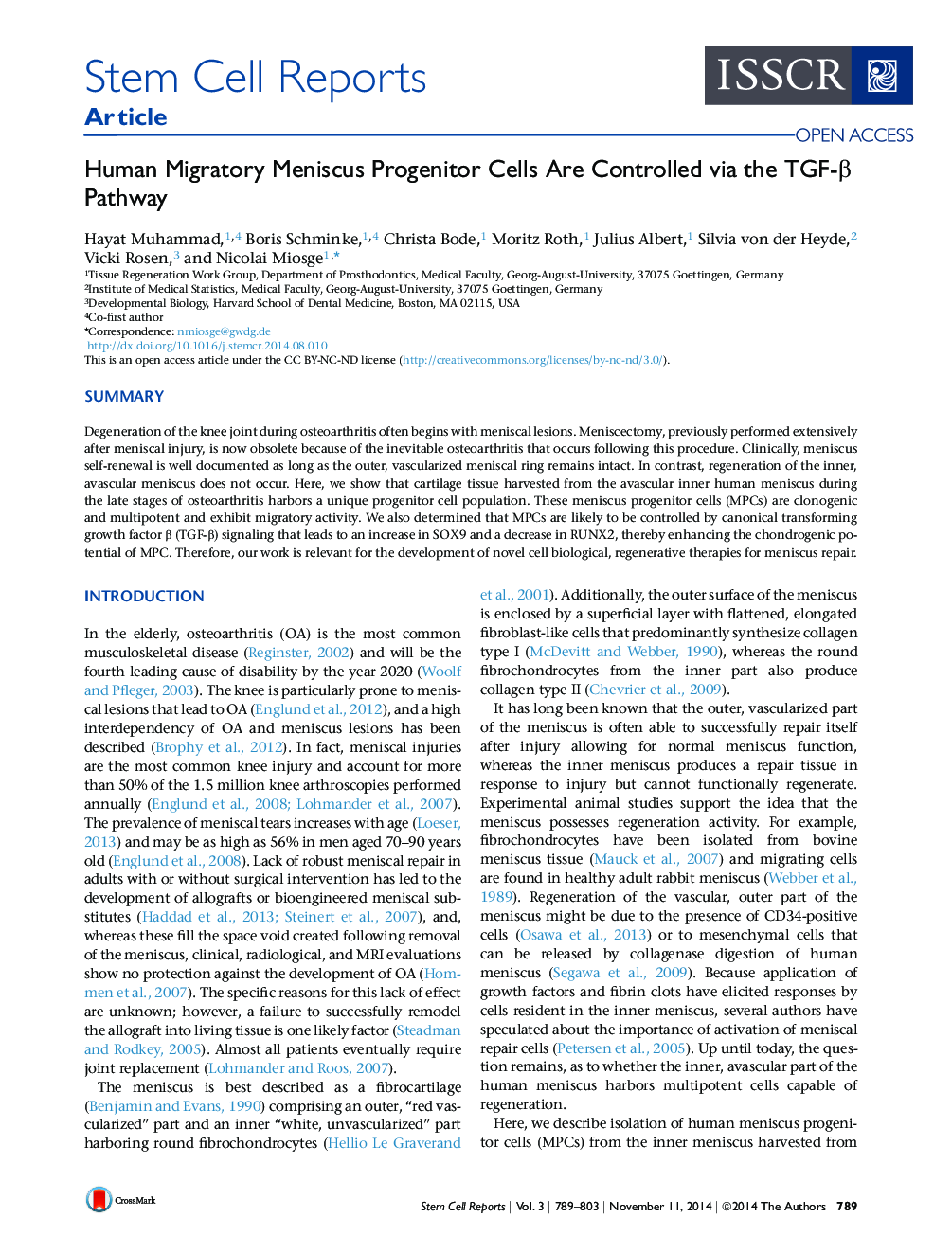| کد مقاله | کد نشریه | سال انتشار | مقاله انگلیسی | نسخه تمام متن |
|---|---|---|---|---|
| 2093328 | 1081953 | 2014 | 15 صفحه PDF | دانلود رایگان |

• Progenitor cells are found in the inner avascular part of human osteoarthritic menisci
• These meniscus progenitor cells (MPCs) are clonogenic, migratory, and multipotent
• MPCs are governed via the canonical TGF-β pathway
• TGF-β3 via Smad2 reduces Runx2 to enhance the chondrogenic potential of MPCs
SummaryDegeneration of the knee joint during osteoarthritis often begins with meniscal lesions. Meniscectomy, previously performed extensively after meniscal injury, is now obsolete because of the inevitable osteoarthritis that occurs following this procedure. Clinically, meniscus self-renewal is well documented as long as the outer, vascularized meniscal ring remains intact. In contrast, regeneration of the inner, avascular meniscus does not occur. Here, we show that cartilage tissue harvested from the avascular inner human meniscus during the late stages of osteoarthritis harbors a unique progenitor cell population. These meniscus progenitor cells (MPCs) are clonogenic and multipotent and exhibit migratory activity. We also determined that MPCs are likely to be controlled by canonical transforming growth factor β (TGF-β) signaling that leads to an increase in SOX9 and a decrease in RUNX2, thereby enhancing the chondrogenic potential of MPC. Therefore, our work is relevant for the development of novel cell biological, regenerative therapies for meniscus repair.
Graphical AbstractFigure optionsDownload as PowerPoint slide
Journal: - Volume 3, Issue 5, 11 November 2014, Pages 789–803